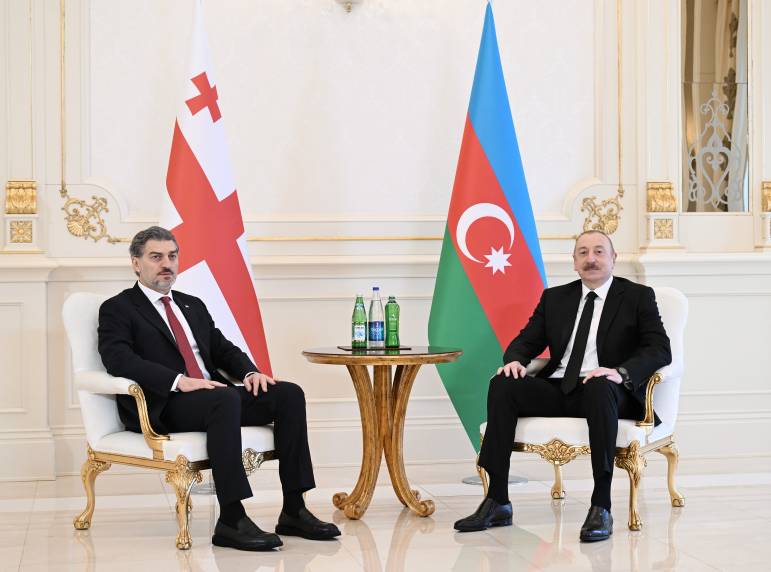20:15
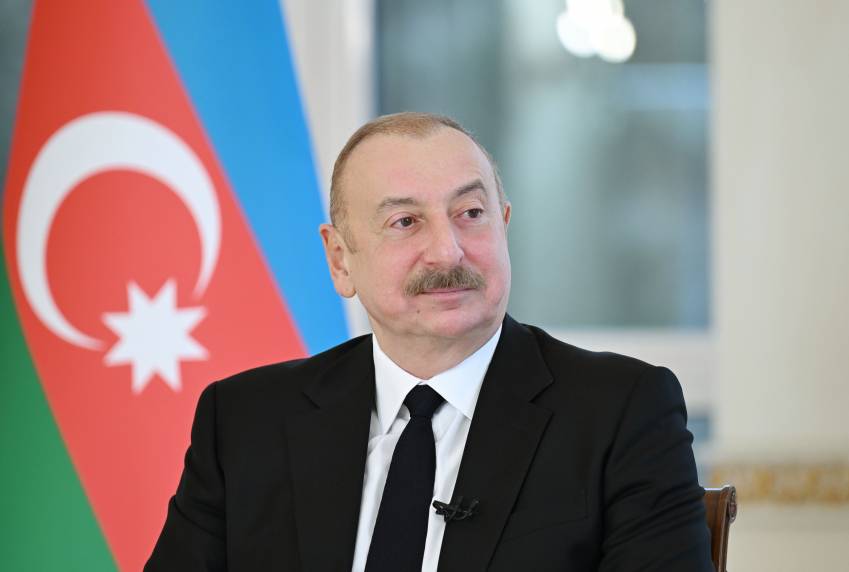
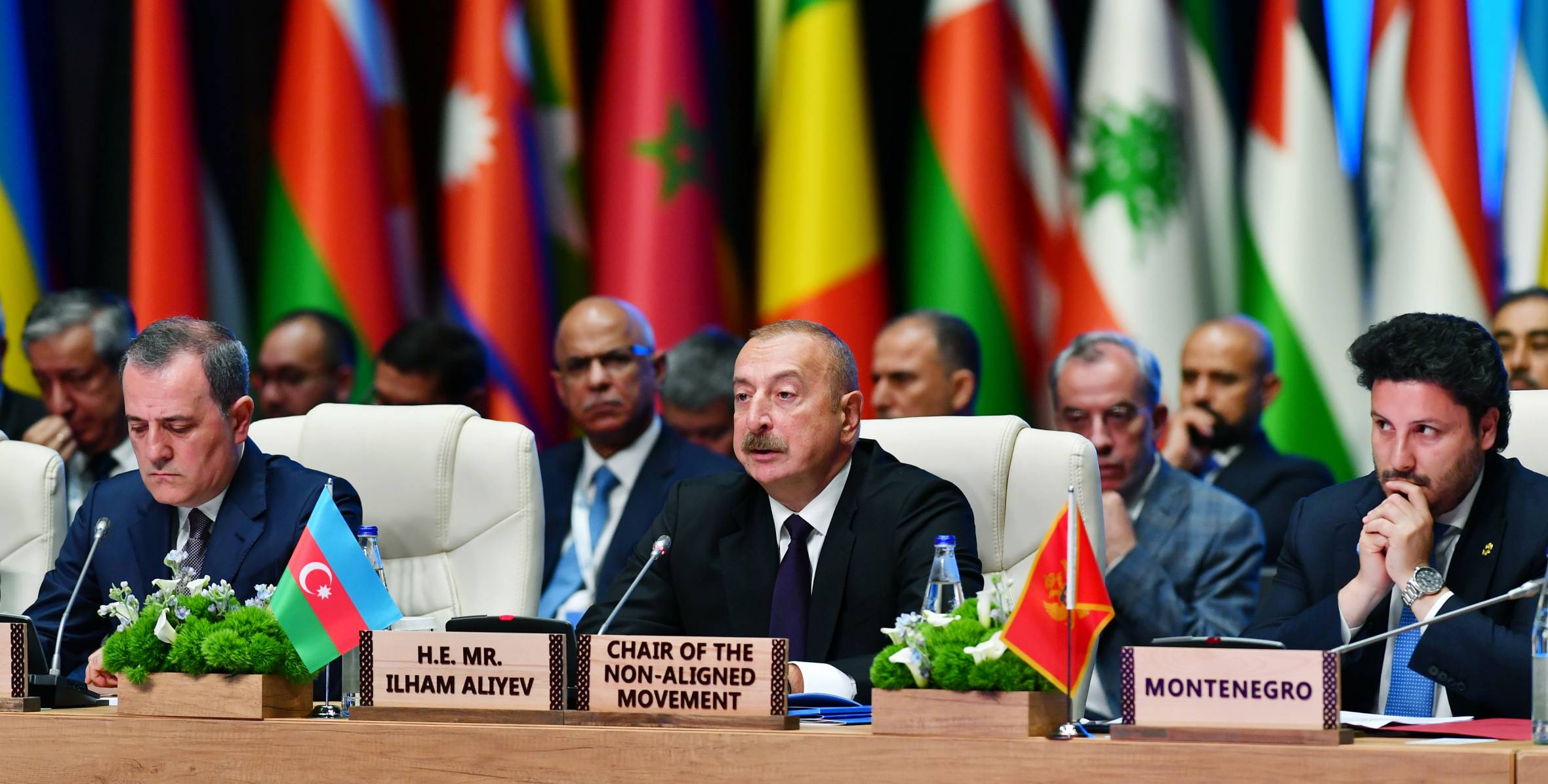
The Ministerial Meeting of the Non-Aligned Movement Coordinating Bureau themed “NAM: United and steadfast in confronting emerging challenges” has been held at Baku Convention Center.
Greeting the participants of the Ministerial Meeting of the Non-Aligned Movement Coordinating Bureau, Minister of Foreign Affairs of the Republic of Azerbaijan Jeyhun Bayramov declared the event open.
First, the memory of the leaders of the member countries of the Non-Aligned Movement who lost their lives from 2019 until today was honored with observing a minute of silence.
Minister Jeyhun Bayramov said that this meeting of ministers as part of preparation for the Kampala Summit will provide an opportunity to review the achievements made after the Summit of the Non-Aligned Movement in Baku in 2019.
Then, FM Jeyhun Bayramov gave the floor to President of the Republic of Azerbaijan, Chairman of the Non-Aligned Movement Ilham Aliyev.
The head of state addressed the meeting.
Speech by President Ilham Aliyev
- Distinguished Ministers,
Ladies and Gentlemen,
Dear Guests,
I welcome you all to Baku at the Ministerial Meeting of the Non-Aligned Movement Coordinating Bureau.
With a unanimous decision of NAM countries, Azerbaijan assumed the chairmanship for 2019-2022 and again, by unanimous decision, our chairmanship was extended for one more year.
The NAM Azerbaijani chairmanship vigorously protected justice and international law and the legitimate interests of Member States in line with the “Bandung principles.”
When the international community was confused over how to deal with the COVID-19 pandemic, it was NAM that consolidated global efforts in countering this unprecedented challenge.
The NAM Online Summit initiated by Azerbaijan at the leaders’ level in May 2020 led to the UN General Assembly Special Session in December 2020. Furthermore, NAM’s strong opposition to “vaccine nationalism” pursued by some wealthy countries and subsequent UN resolutions for equitable and universal access to vaccines for all countries testifies to NAM’s leadership in combatting coronavirus.
The institutional development of the Movement, namely, the establishment of the NAM Parliamentary Network and NAM Youth Organization in 2021 and 2022, respectively, is another achievement of the Azerbaijani chairmanship. Currently, we are also working on the establishment of the NAM women platform. With these steps towards institutional sustainability, we will definitely leave a successful legacy to incoming chairs.
As responsible and active members of the international community, we also had to think about the post-pandemic period. Thus, Azerbaijan successfully organized another NAM summit this March on post-pandemic recovery in Baku, where we discussed issues of global importance and shared views about better post-pandemic recovery.
Supporting countries in need was another priority for Azerbaijani chairmanship. Azerbaijan provided COVID-19-related financial and humanitarian support to more than 80 countries, most of those from NAM either bilaterally or through World Health Organization. Azerbaijan made voluntary contributions to the World Health Organization in the amount of 10 million USD. We also provided vaccines to 5 countries.
At the above-mentioned March summit, I also declared two Global Calls to support the post-pandemic recovery of Africa and Small Island Developing States. As the first donor, Azerbaijan allocated 1 million US dollars for both Calls.
Ladies and Gentlemen,
As a true defender of multilateralism and the second largest international institution after the UN, NAM has to find its own place in the newly reshaping world order. We need to stand firm around Bandung principles, make our voice louder against cases of violation of sovereignty and territorial integrity and intervention in the internal affairs of states. Our movement’s more visible presence in the world affairs is vital.
Multilateralism is our powerful instrument. Currently, international organizations, particularly the UN, do not meet the expectations of mankind. Inevitably UN needs to go through serious reforms. UN Security Council is reminiscent of the past and does not reflect the current reality. We advocate the expansion of the composition of the Security Council to make it more representative and more geographically fair. I am glad that today there is a growing consensus on this idea worldwide.
As I have highlighted before, one permanent seat at the UN Security Council should be given to the Non-Aligned Movement. We believe that countries holding the position of chair of the NAM, Organization of Islamic Cooperation, and African Union should have their seats at the UN Security Council on a rotating basis with a veto right.
Azerbaijan is very much concerned by the rising tendency towards neo-colonialism. NAM, which was created as a result of the decolonization process, should vigorously combat this shameful legacy of the past and contribute to its full elimination.
One of the countries that is still pursuing neo-colonialism is France. French-administered territories outside Europe are nasty remains of the French colonial empire. France must respect the sovereignty of Comoros over the island of Mayotte and the rights of the New Caledonian people and other peoples in French overseas communities and territories. I welcome the distinguished representatives from French overseas communities and territories who will hold their side event in the margins of Baku Ministerial to make their just cause and aspirations for freedom be heard by the international community.
Nearly 1.5 million Algerians were killed during genocidal French rule. Algerian freedom fighters' sculls still remain in Paris Museum as war trophies. This is cynical and disgusting. We demand President Emmanuel Macron of France to hand over to Algeria the remains of its heroes.
France, which falsely presents itself as a defender of human rights and international law, still interferes in the domestic affairs of other countries. The recent withdrawal of French troops from Mali and Burkina Faso once again demonstrated that the outrageous neo-colonialism policy of France in Africa is doomed to failure. Unfortunately, France is trying to impose the same ill practice in the region of South Caucasus by supporting Armenian separatism in the Karabakh region of Azerbaijan and by means of geopolitical rivalry, foreign military presence and colonial policy of “Orientalism.”
France has conducted several nuclear weapons tests in Algeria and its overseas territories - French Polynesia in the Pacific throughout the second half of the twentieth century, thus causing global environmental degradation and severe health problems for local communities.
France has to apologize for its colonial past and bloody colonial crimes and acts of genocide against NAM member countries in Africa, South-East Asia and other places.
Several days ago, the king of the Netherlands officially apologized for his country’s colonial past and involvement in the slave trade. We call his French colleague to do the same. Better late than never. Apology in front of millions of people whom his predecessors colonized, used as slaves, killed, tortured and humiliated will not only be a recognition of the historical guilt of France but also will help France to overcome the consequences of deep political, social and humanitarian crisis it is facing after the brutal killing of Algerian teenager.
The persistent and widespread racist and discriminatory discourse, especially in the media and on the Internet, against certain ethnic minorities and racist hate speech by officials and members of two chambers of the parliament is on the rise in France. The recent killing of a 17-year-old teenager of Algerian origin by French police is yet another sign of racism and Islamophobia in this country. In this regard, we echo the UN statement deploring the police shooting and calling France “to seriously address the deep issues of racism and discrimination in law enforcement.”
France even bans the Corsican language and does not accept the concept of ethnic minorities. At the same time, it tries to present itself as a defender of the Armenian minority in Azerbaijan. This is nothing but hypocrisy and double standards.
Instead of trying to lecture others, French authorities should combat such alarming tendencies in their own country.
Dear friends,
Climate change, water scarcity, food insecurity, and forced migration require constant attention. Small Island Developing States are more vulnerable to climate change’s impact and face an existential threat. Horrific pictures of migrant boat disasters in the Mediterranean Sea are deeply alarming.
The promotion of intercultural and interreligious dialogue should be high on our agenda. We are concerned by rising Islamophobia and xenophobia, as well as attempts to equate Islam with violence and terror. Burning and desecrating the Holy Quran in Denmark, Netherlands, and Sweden and justifying it under the guise of freedom of expression is totally irresponsible and inadmissible and must be condemned.
The most significant and memorable moment for the Azerbaijani people was the historic victory in the Patriotic War. In 2020 Azerbaijan defeated Armenia on the battlefield and put an end to 30 years of Armenian occupation. Armenia, as occupying country, was obliged to sign a capitulation act. Thus, Azerbaijan restored its territorial integrity and historical justice, and itself enforced four UN Security Council resolutions of 1993. This victory of Azerbaijan is the triumph of international law and justice.
Thirty years ago, Armenia occupied almost 20% of internationally recognized territories of Azerbaijan and perpetrated ethnic cleansing both in Armenia and in the occupied territories of Azerbaijan, as a result of which more than 1 million Azerbaijanis became refugees and internally displaced persons. Armenia committed genocide in Khojaly town in 1992, where 613 Azerbaijani, including 106 women and 63 children, were brutally killed simply because of their ethnic identity.
After the liberation of our territories, Azerbaijan is now facing a number of huge challenges. We were shocked by the scale of destruction in the formerly occupied territories. Azerbaijani cities and villages were deliberately destroyed, looted brick by brick, and all cultural and religious sites and mosques were desecrated and plundered by Armenia. Armenia committed urbicide, culturicide and ecocide in the then-occupied territories.
65 mosques out of 67 in the formerly occupied territories were destroyed, and the remaining ones were used as stables for pigs and cows, which is an insult against all Muslims of the world.
Sixty thousand hectares of forests have been destroyed, cut down and taken away, and soil and rivers have been polluted and contaminated.
Armenia continues causing transboundary environmental disaster now with the involvement of a foreign company along the border with the Nakhchivan Autonomous Republic of Azerbaijan. By doing so, Armenia violates its obligations stemming from the 1991 Convention on Environmental Impact Assessment in a Transboundary Context (Espoo Convention), which clearly stipulates that respected countries must consult each other to avoid an adverse transboundary impact.
Another negative consequence of the Armenian occupation is landmines. Azerbaijan is among the ten most heavily mine-infested countries in the world now. Some 300 Azerbaijanis have been killed or seriously injured in mine incidents since the end of the Patriotic War in November 2020. Each mine explosion in the liberated territories is a continuation of a long list of war crimes committed by Armenia. The landmine problem is a violation of the fundamental human rights of the Azerbaijani people by Armenia. As if it is not enough, Armenia continued to produce massive amounts of landmines and smuggled them to the Karabakh region of Azerbaijan for military usage until the establishment of the Lachin border-customs checkpoint.
Landmines slow down the reconstruction process and the return of former internally displaced persons to the liberated territories. With this in mind, Azerbaijan has set a particular national Sustainable Development Goal on humanitarian demining. Moreover, Azerbaijan supports humanitarian demining efforts globally and put forward a proposal of launching the 18th SDG on demining.
I am confident that NAM Member States will support my proposal to form a Like-Minded Group of Mine-Affected Countries to make our voice heard globally.
Armenia also has to provide full transparency and cooperation in identifying the fate of almost 4000 missing Azerbaijanis due to the First Karabakh War who were tortured, killed and buried in mass graves.
Despite all these challenges, Azerbaijan successfully conducts large-scale reconstruction works in the liberated territories of 10 thousand square kilometers from scratch with its own financial resources.
Shortly after the end of the conflict, Azerbaijan presented five basic principles for signing a peace treaty with Armenia based on the mutual recognition of each other's sovereignty and territorial integrity.
Although Armenia had to recognize Karabakh as a part of Azerbaijan, there are still remnants of Armenian armed forces in the territories of Azerbaijan where Russian peacekeepers are temporarily deployed. If Armenia is really interested in achieving the long-awaited peace in the region, then its armed forces must completely leave the Karabakh region of Azerbaijan. Armenian military and para-military elements on the ground should be disarmed and demobilized.
Armenia also impedes the opening of the Zangazur corridor, which should connect mainland Azerbaijan with its Nakhchivan Autonomous Republic - another commitment of Armenia deriving from the capitulation act signed almost three years ago.
Ladies and gentlemen,
Using this opportunity, I would like to extend my deep gratitude to NAM countries for their principled stance in supporting the just position of Azerbaijan during and after the end of the occupation. I especially refer to two specific cases in 2020 and 2022, when NAM countries prevented one-sided and biased anti-Azerbaijani statements from passing in the UN Security Council.
I would also like to thank all NAM Member States for their solidarity and support to Azerbaijan to run its chairmanship successfully.
I wish all success to the Baku Ministerial Meeting of the NAM Coordinating Bureau, and I am sure that this Meeting will feature fruitful and result-oriented discussions among the Member States.
Thank you!
X X X
The Ministerial Meeting continued with discussions.
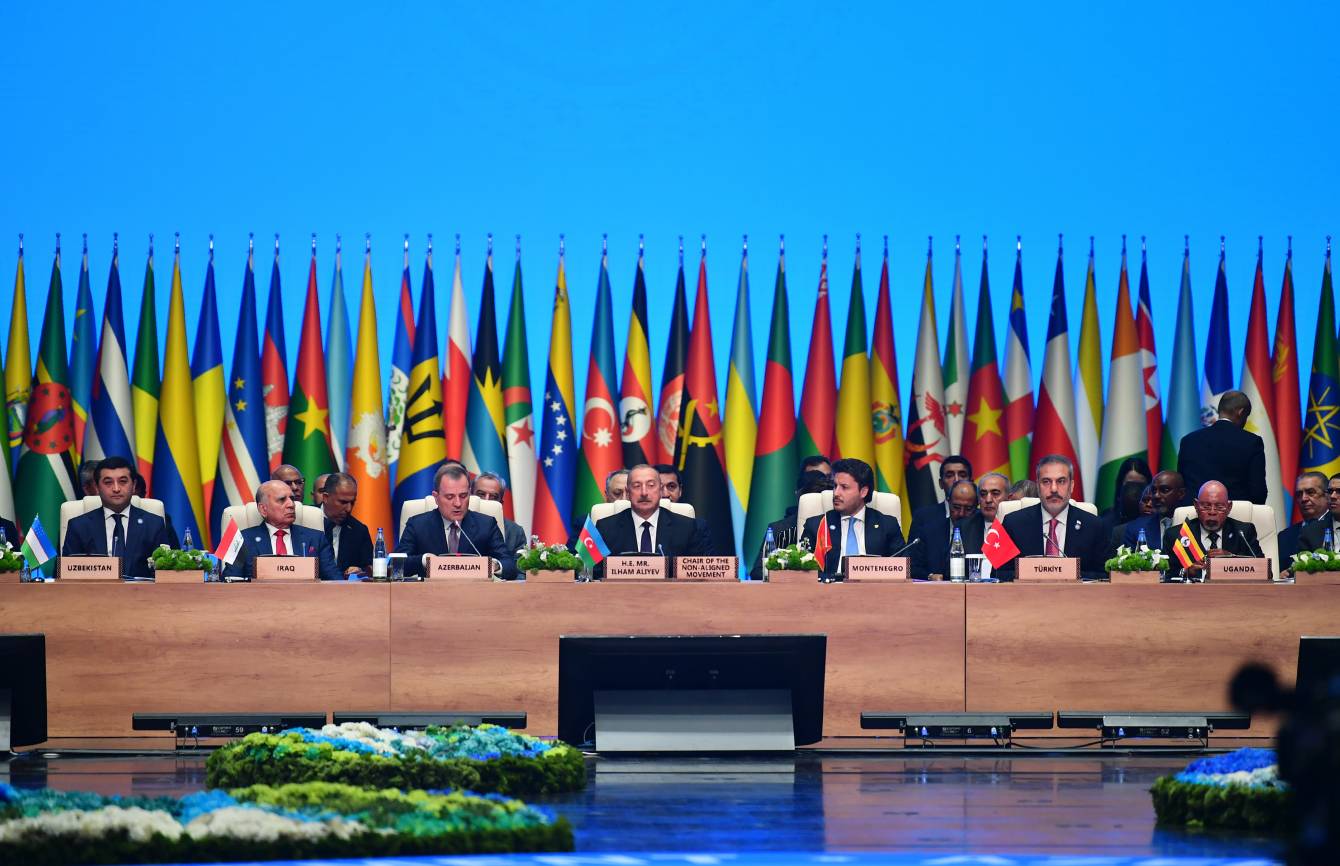
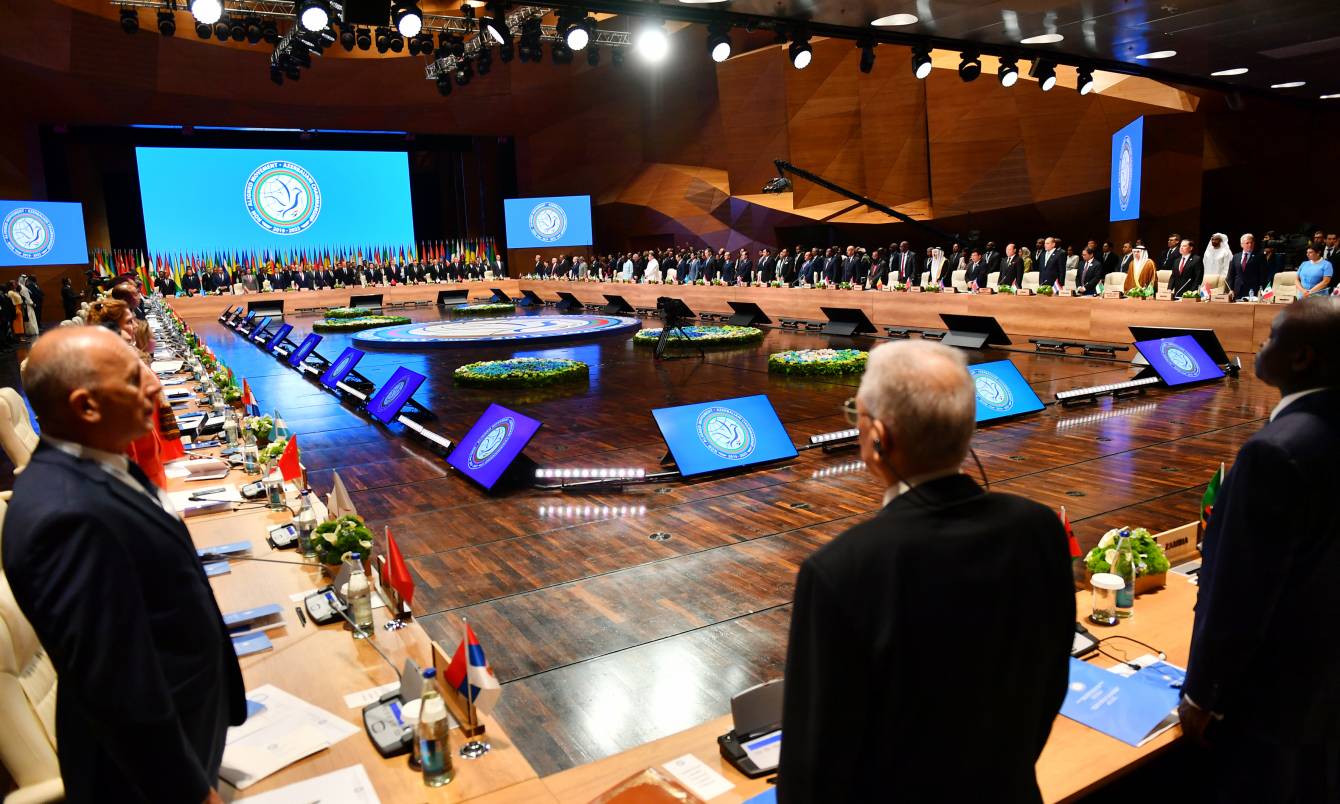
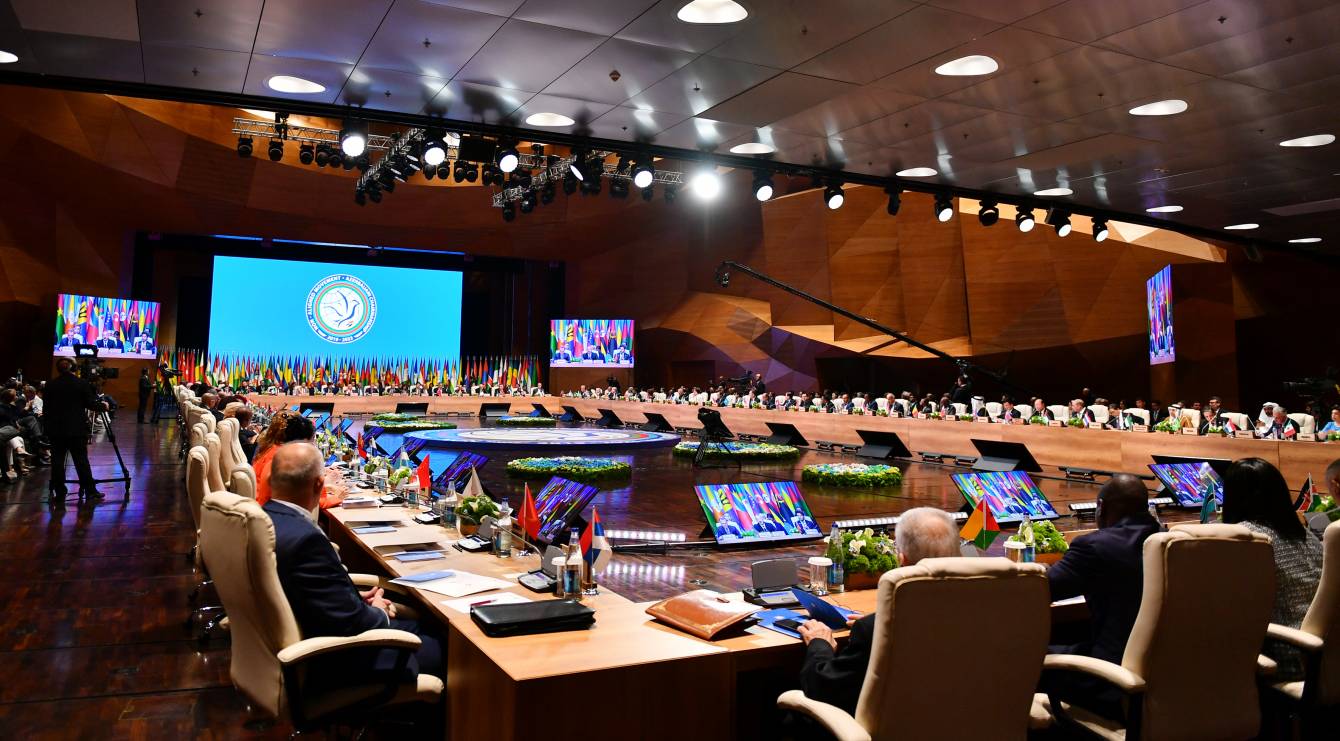
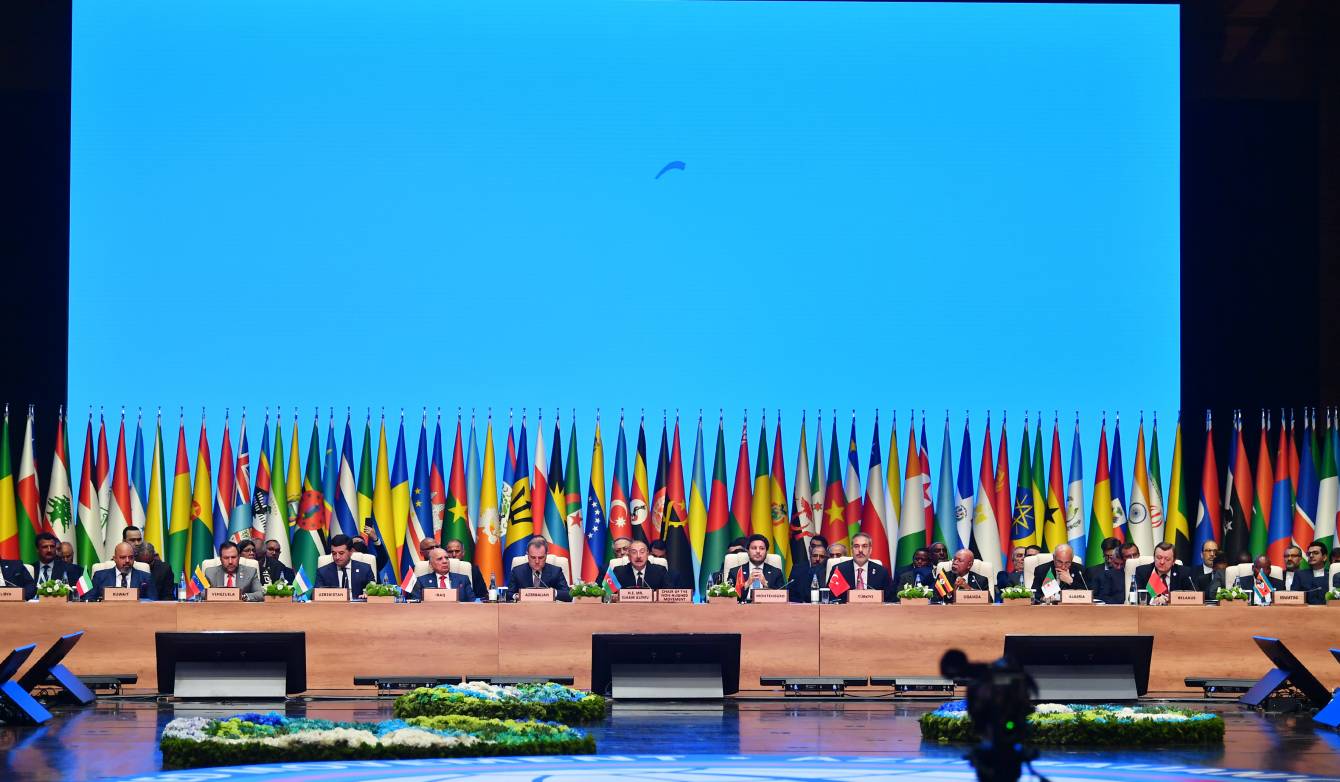
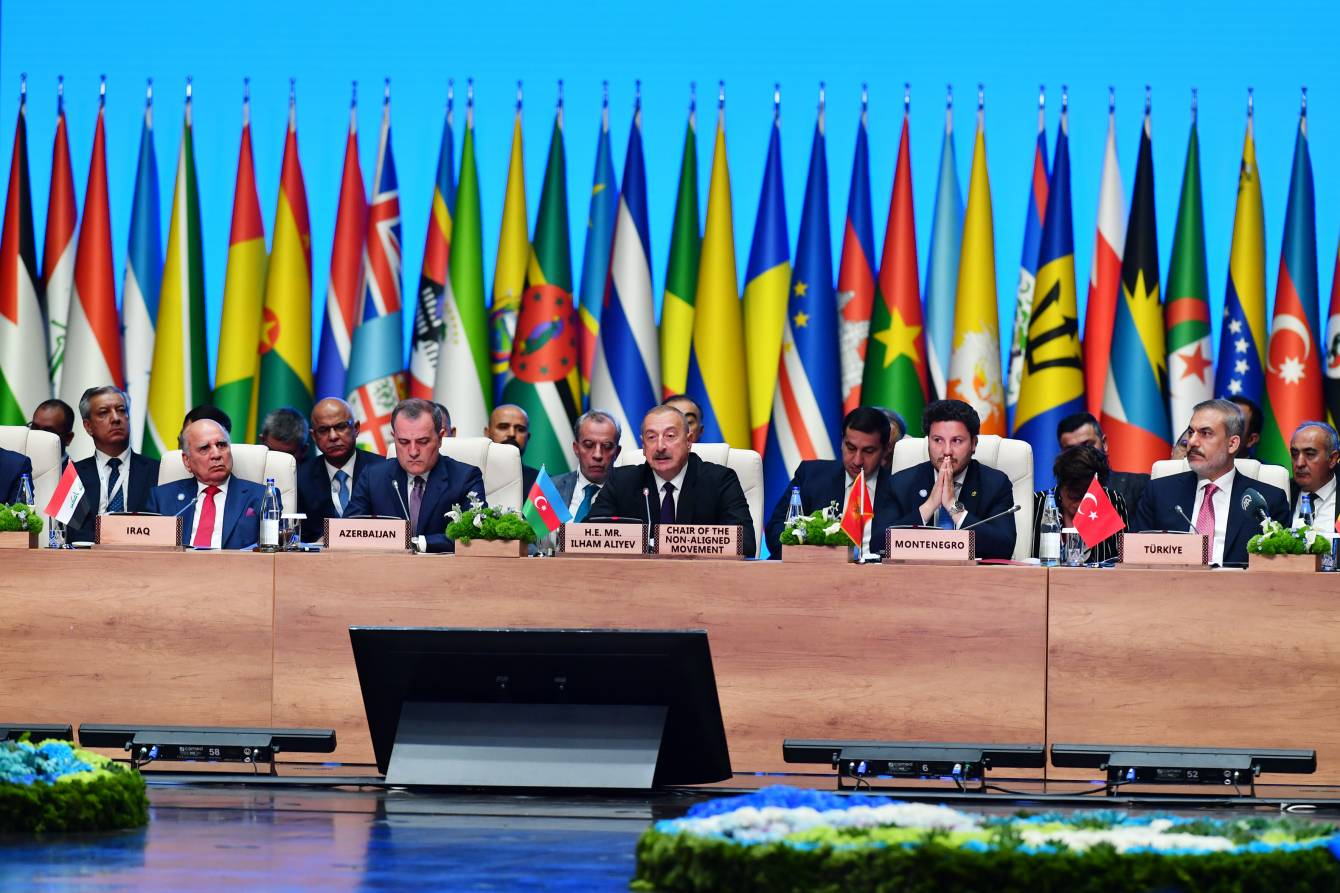
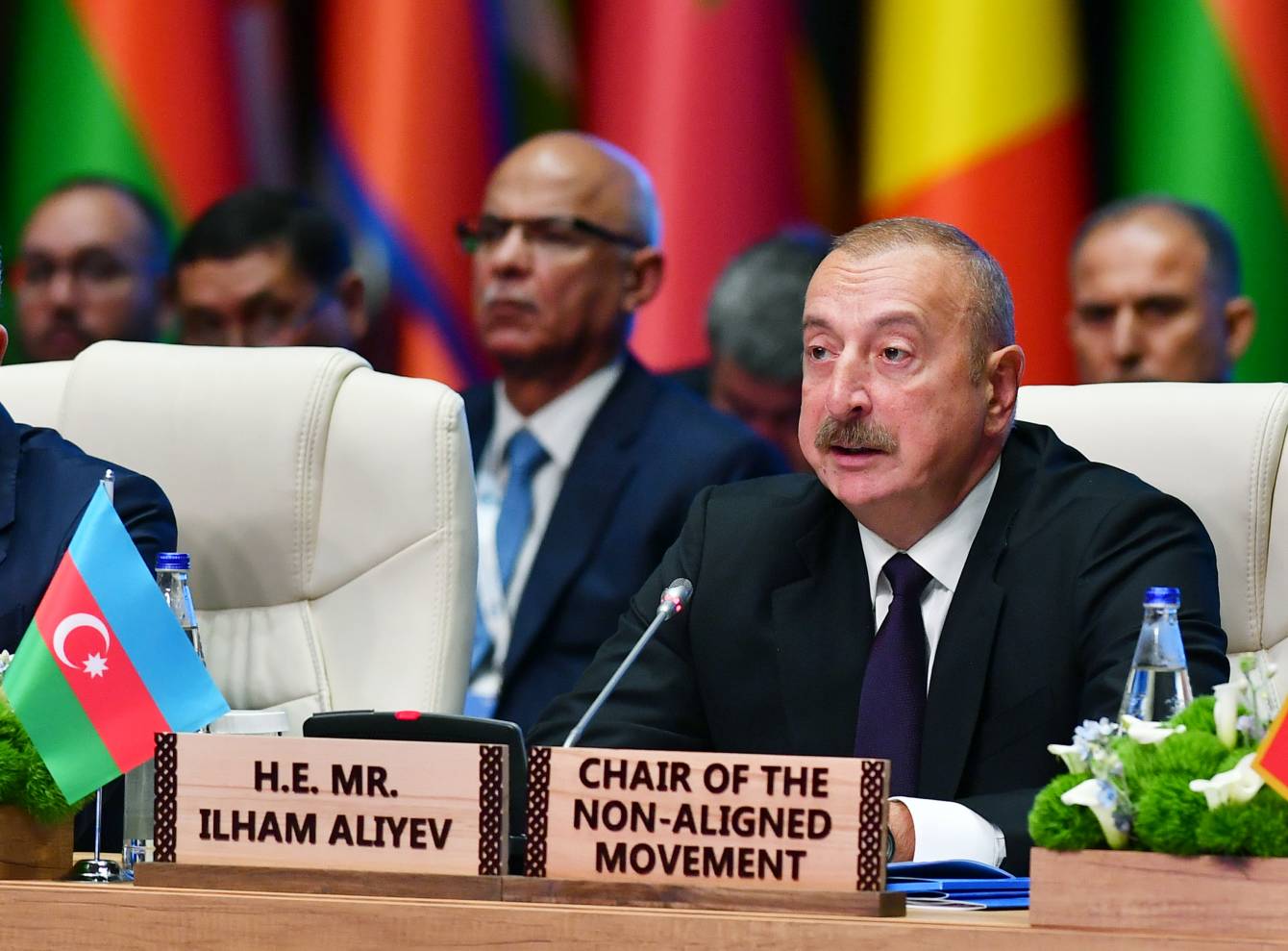
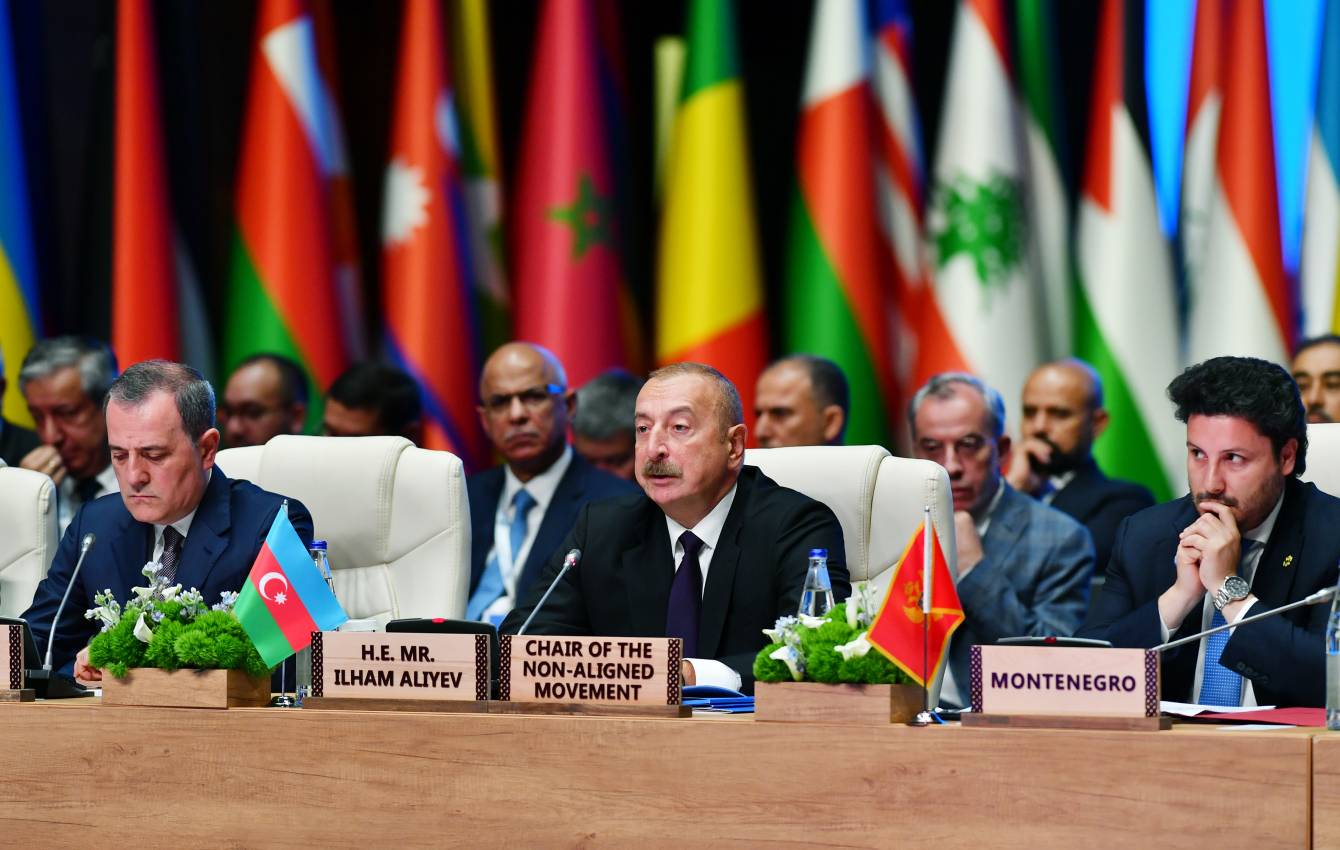
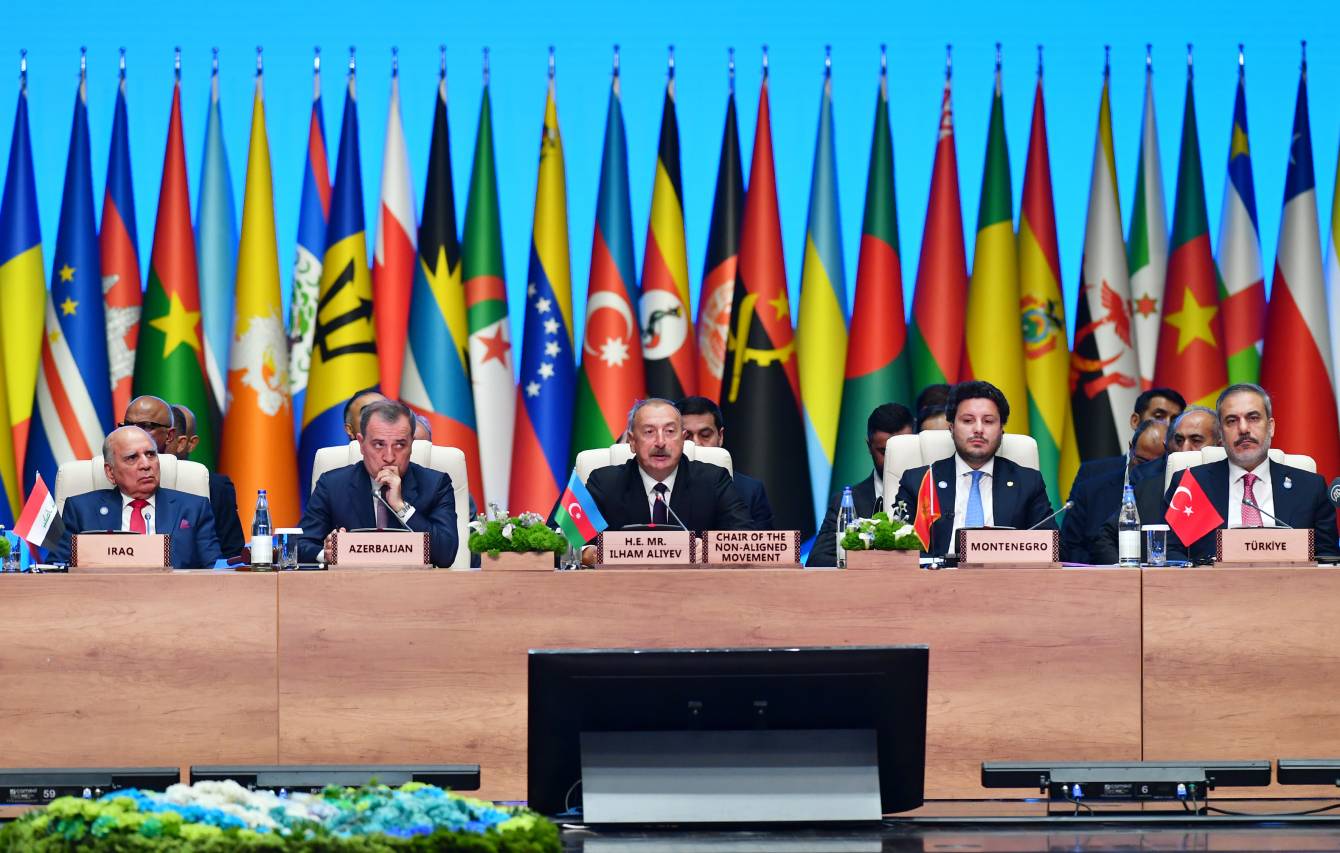
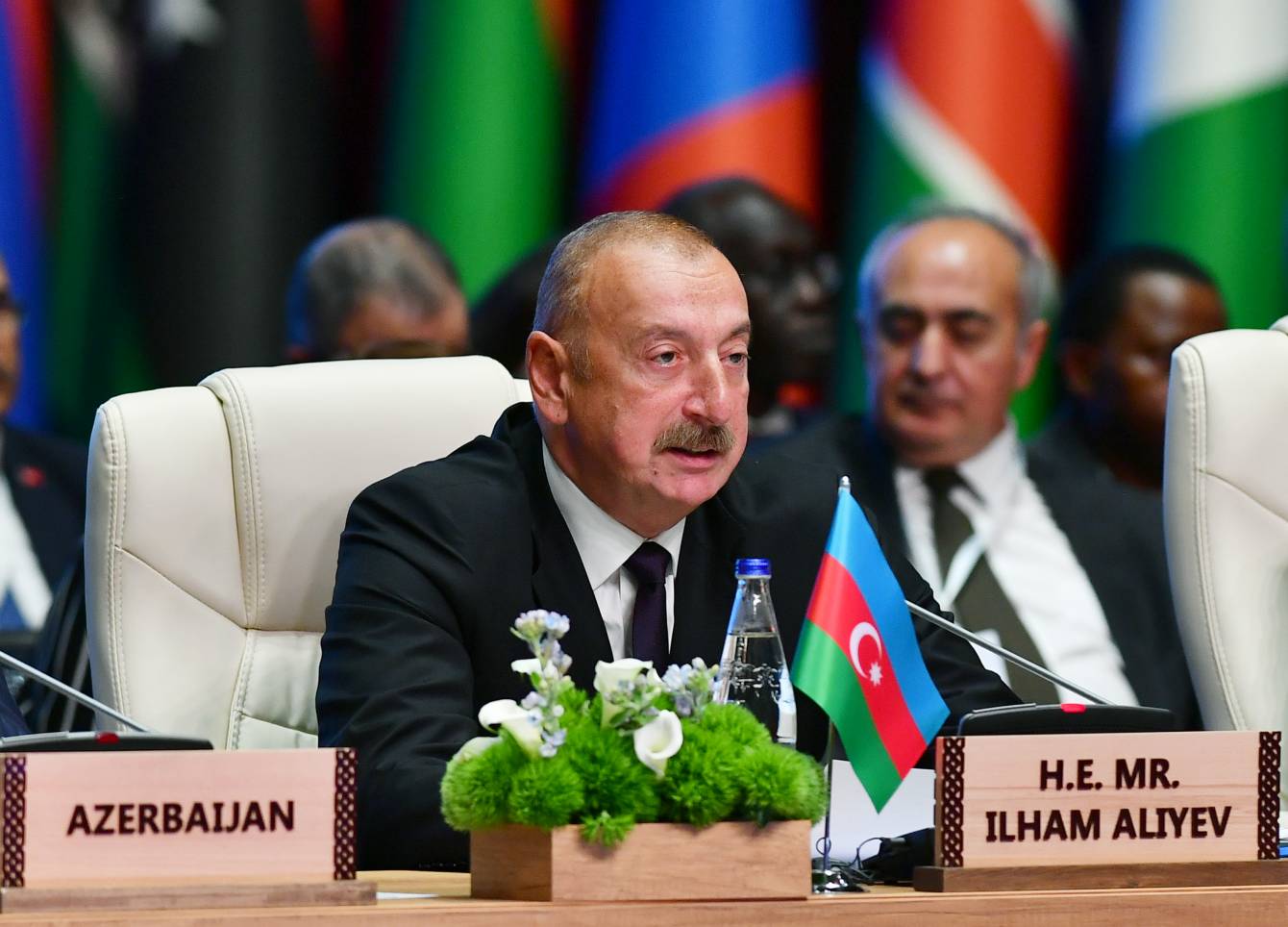
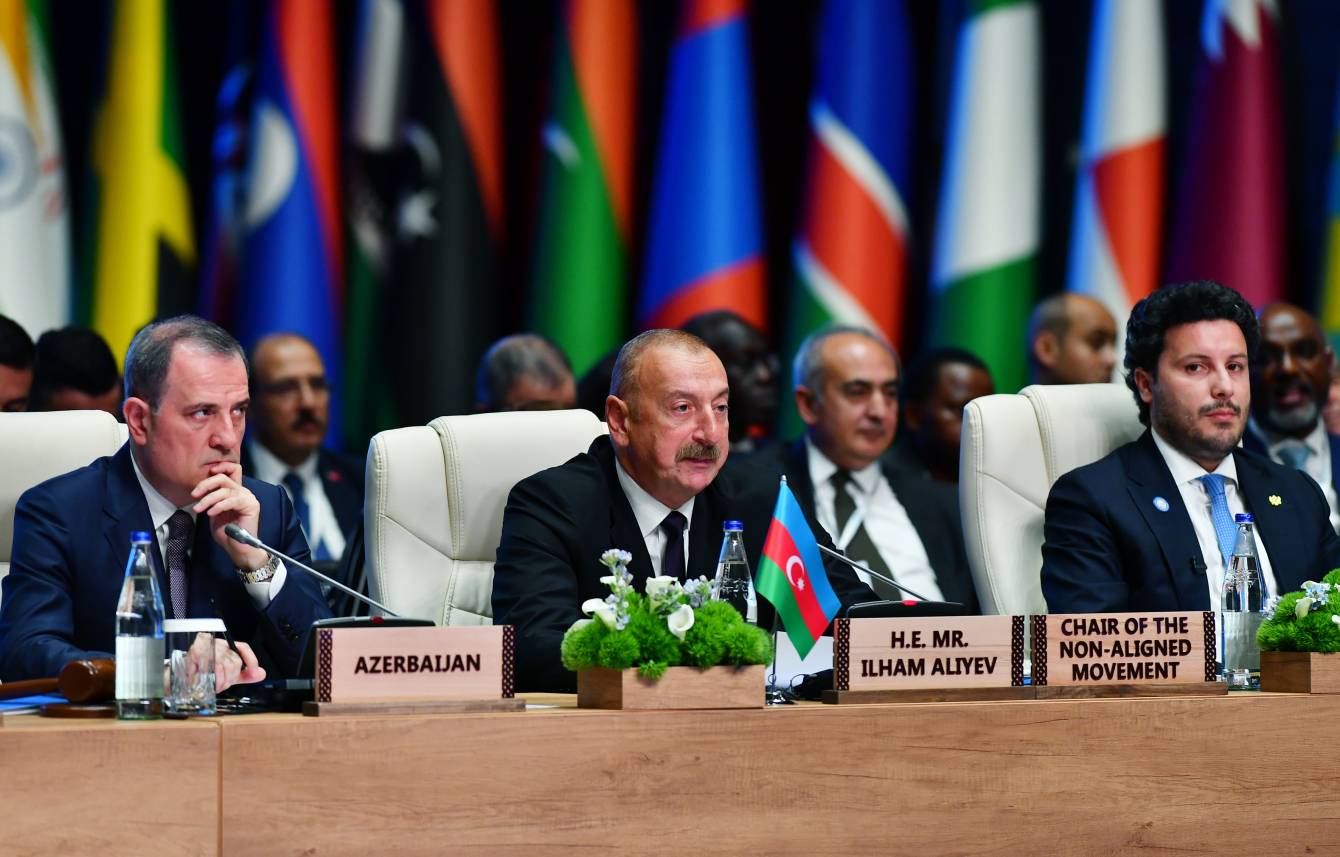
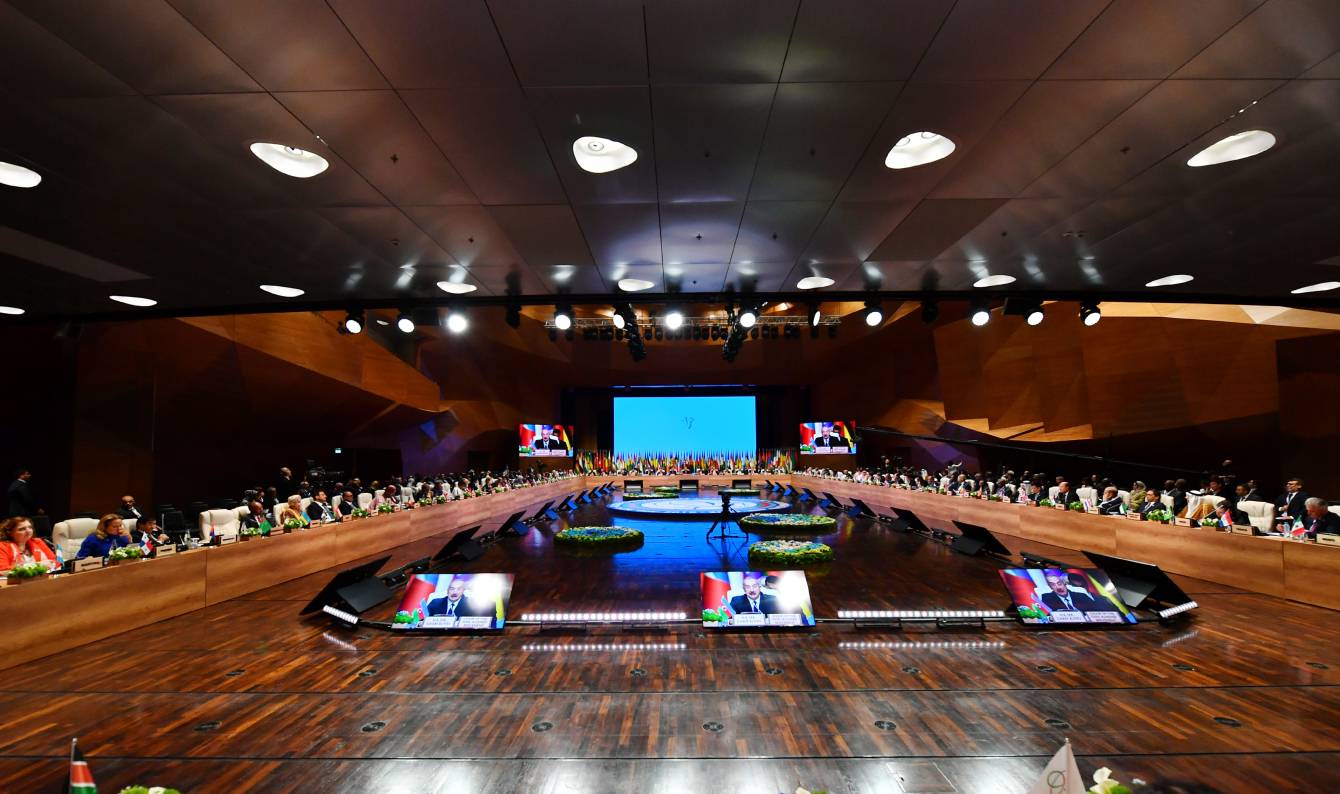
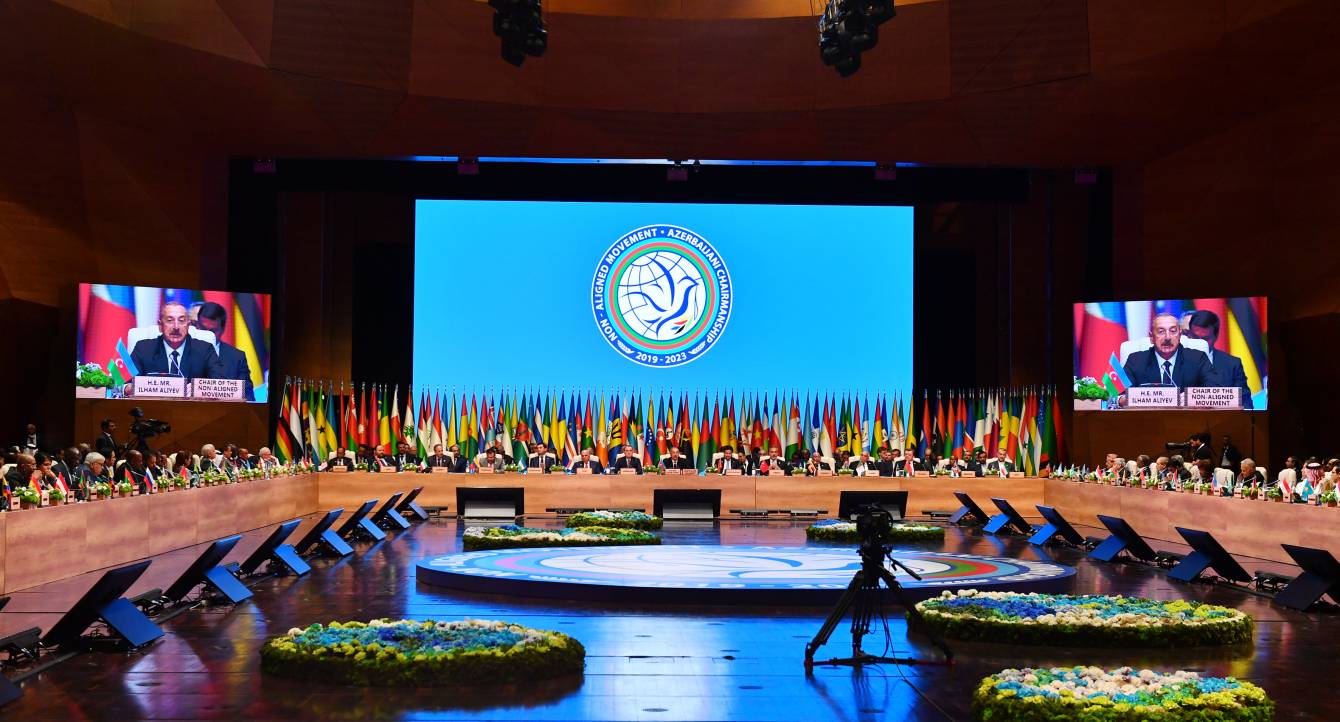
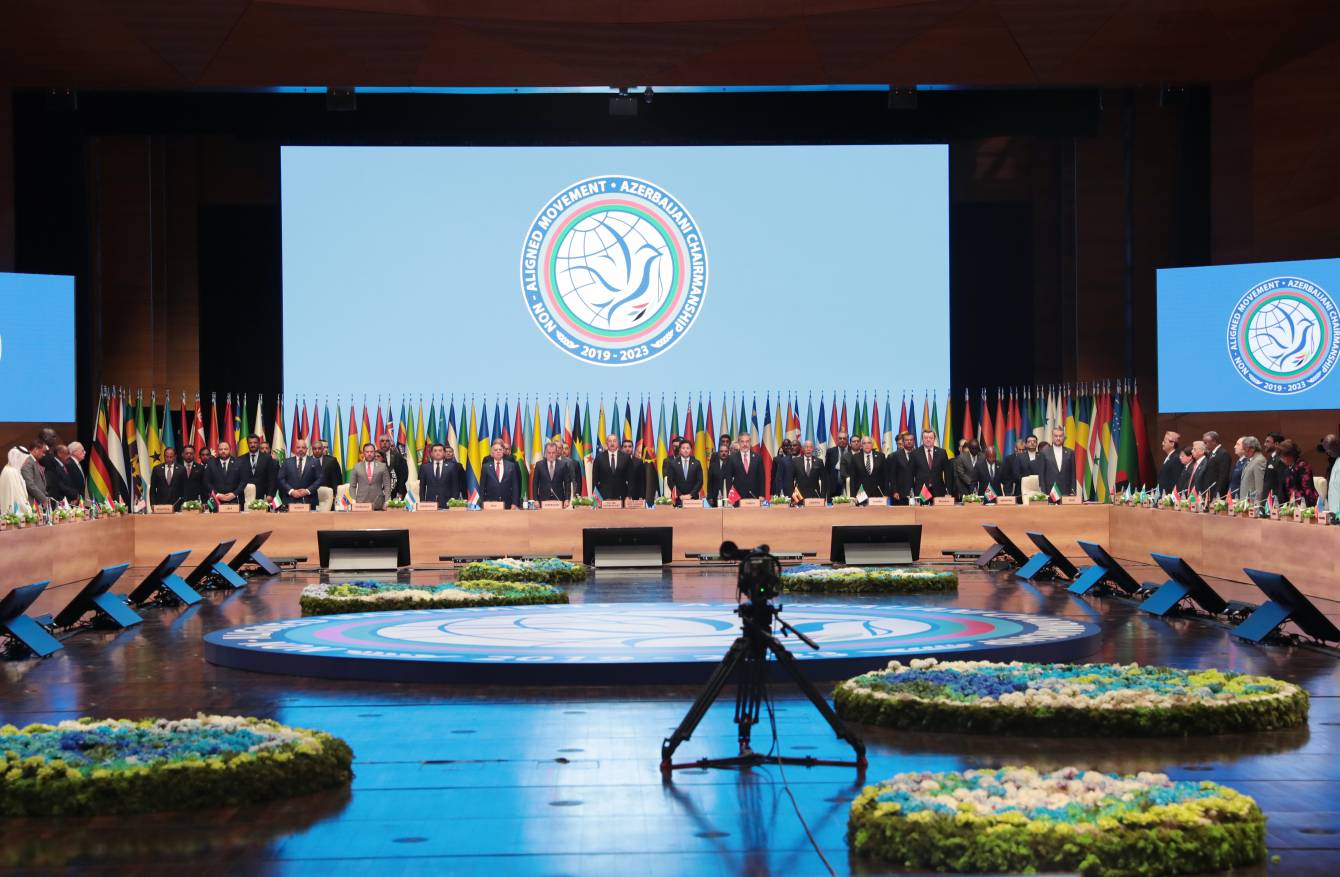

Your Eminence,
We were deeply saddened to hear of the passing of His Holiness Pope Francis, Head of the Holy See and one of the most prominent religious figures of our time.
In the person of Pope Francis, the international community and the Catholic world have lost...
21 April 2025, 14:13I sincerely congratulate you and the entire Christian community of Azerbaijan on the sacred holiday of Easter, and I extend my wishes of happiness and well-being to all of you.
In Azerbaijan, which has rich traditions of tolerance, there has never been a case of...
18 April 2025, 16:25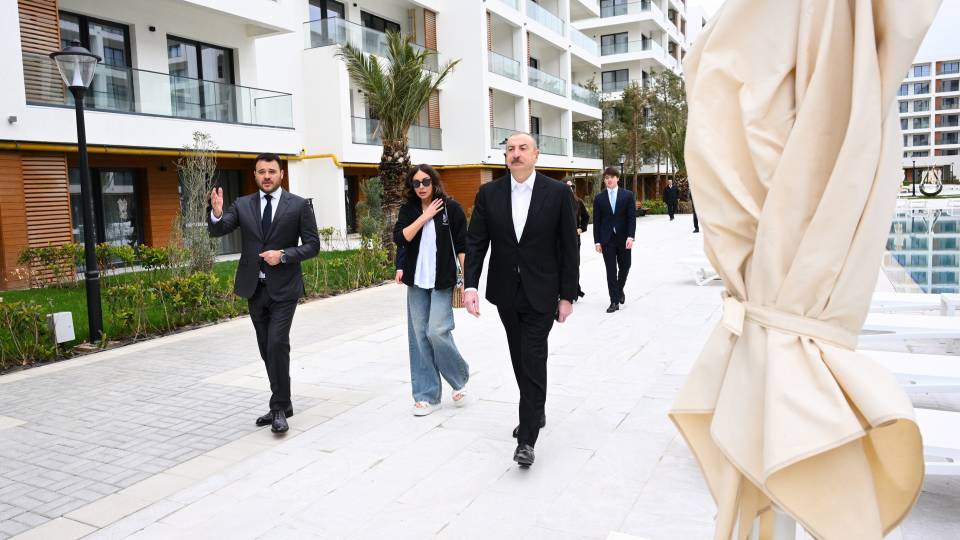
Dear Mr. Çavuşoğlu,
I was deeply saddened to learn of the passing of your father, Osman Çavuşoğlu — a profound loss for your family.
In this time of sorrow, I share in your grief and extend my deepest condolences to you and all the members of your family,...
18 April 2025, 12:37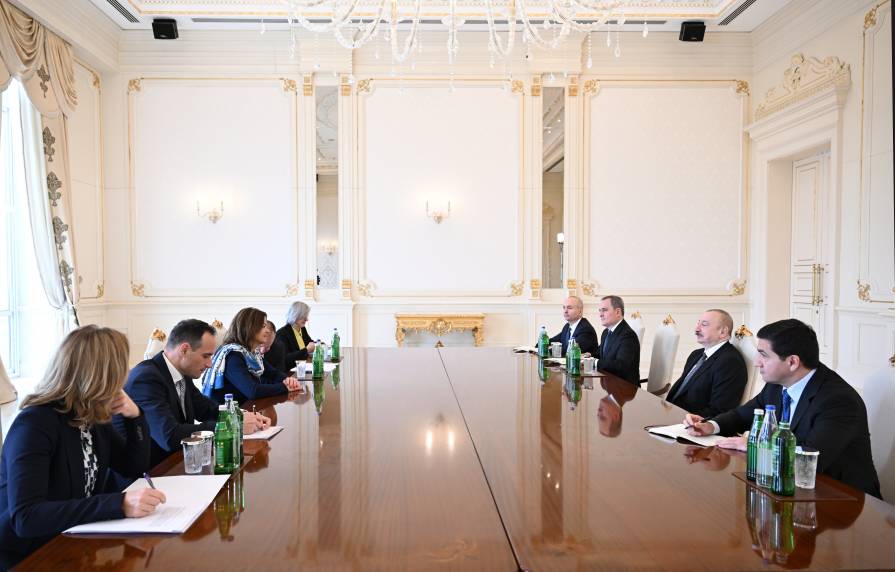
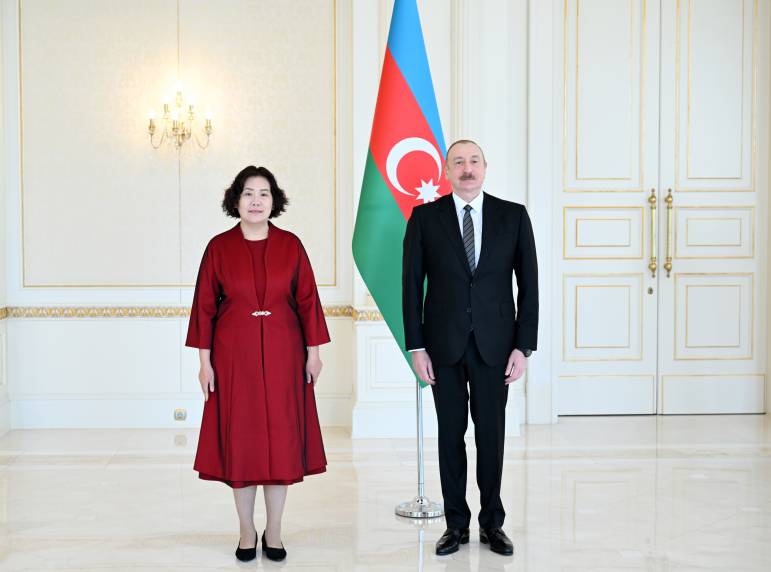
We were deeply saddened to learn of the passing of Richard Armitage – an eminent statesman, distinguished diplomat, dedicated public servant, and a great friend of Azerbaijan.
His years-long, productive service in international politics and diplomacy, coupled with...
16 April 2025, 18:06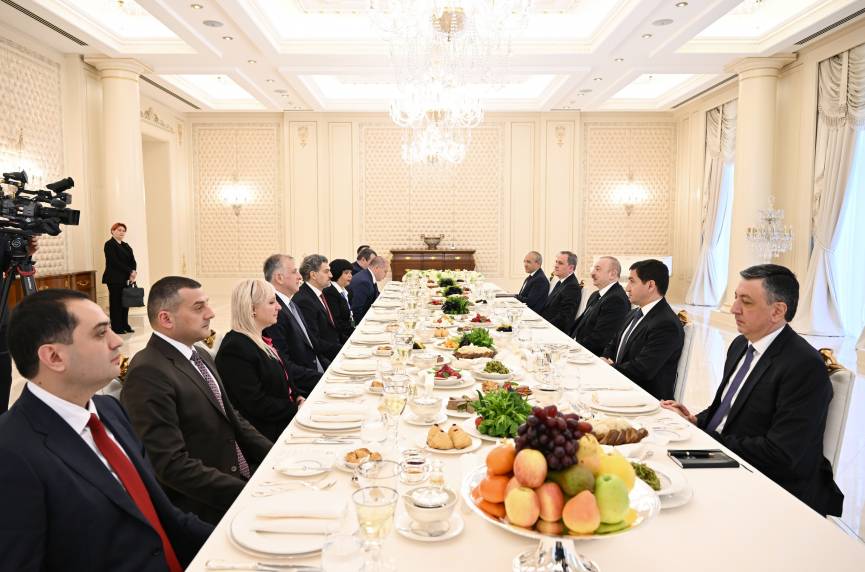
Statement by President Ilham Aliyev
- Dear Mr. President,
Dear guests,
Ladies and gentlemen,
Dear Mr. President, I would like to once again sincerely welcome you to Azerbaijan! I cordially congratulate you again on your election as a President and wish you ...
16 April 2025, 12:12